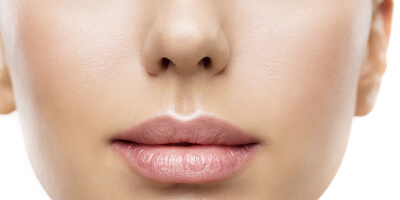Rhinoplasty

Rhinoplasty is a procedure that is done to change the size or shape of the nose.
Consultants who perform this procedure
Special interests include:
{{ consultant.special_interests[0].name }} (+ {{ consultant.special_interests.length - 1 }} more)
Learn more about rhinoplasties at King Edward VII’s Hospital
There are two types of rhinoplasty:
- Open (performed by making a small incision on the nose, between the nostrils)
- Closed (performed by making incisions inside the nostrils)
You can discuss with your surgeon which of these two options would work best for you.
Why would I need rhinoplasty?
Rhinoplasty might be completed for cosmetic reasons (because you dislike the current shape or size of your nose) or for medical reasons (after an injury or because of breathing problems).
What symptoms does rhinoplasty address?
Some of the reasons you might get rhinoplasty are to:
- Remove a bump on the bridge of the nose
- Reshape the tip
- Change the length of your nose
- Change the width of your nose
- Address breathing problems
When should you speak to your specialist about rhinoplasty?
If you are self-conscious about your nose, or dislike its current size or shape, or have had an injury that has caused a change to its appearance or has made breathing more difficult, you might want to consider talking to your specialist about the possibility of undergoing rhinoplasty.
How is rhinoplasty performed?
Rhinoplasty takes approximately an hour and a half to three hours and is done under general anaesthetic.
Depending on the nature of the procedure that you are undergoing, your surgeon will either make an incision in the interior or exterior of your nose and make adjustments based on what you would like and what is possible.
What is the recovery for rhinoplasty?
Your recovery from rhinoplasty can depend on multiple factors, including your medical history and the nature of your procedure.
Depending on what type of procedure you had, you might have bruising on your nose or stitches. It is advised that you take up to two weeks off of work following your procedure, and refrain from driving immediately afterwards.
You and your surgeon will discuss what you can expect after your surgery, what you should avoid doing afterwards, and what the best options will be for your recovery.
Are there any risks/complications associated with rhinoplasty?
As with any medical procedure, it is possible for risks or complications to arise. It is best that you speak with your specialist about how best to avoid any adverse reactions.
Some complications that have been associated with rhinoplasty are:
- An altered sense of smell
- Damage to your septum
- Heavy nosebleeds
- Permanent breathing problems
How can I prepare for rhinoplasty?
Prior to rhinoplasty you should discuss the preparations you should make with your surgeon, as there are several that could be suggested and they vary depending on the person.
You should also discuss what outcome you are hoping for from the operation with your surgeon.

Guide prices may vary following consultation. We also work with all major insurance companies.
0% interest payment plans available
For a full list of what is and isn’t included, visit self paying for treatment
{{ currentPackage.length_of_stay }}
Call 020 7467 4344
Make an enquiry





